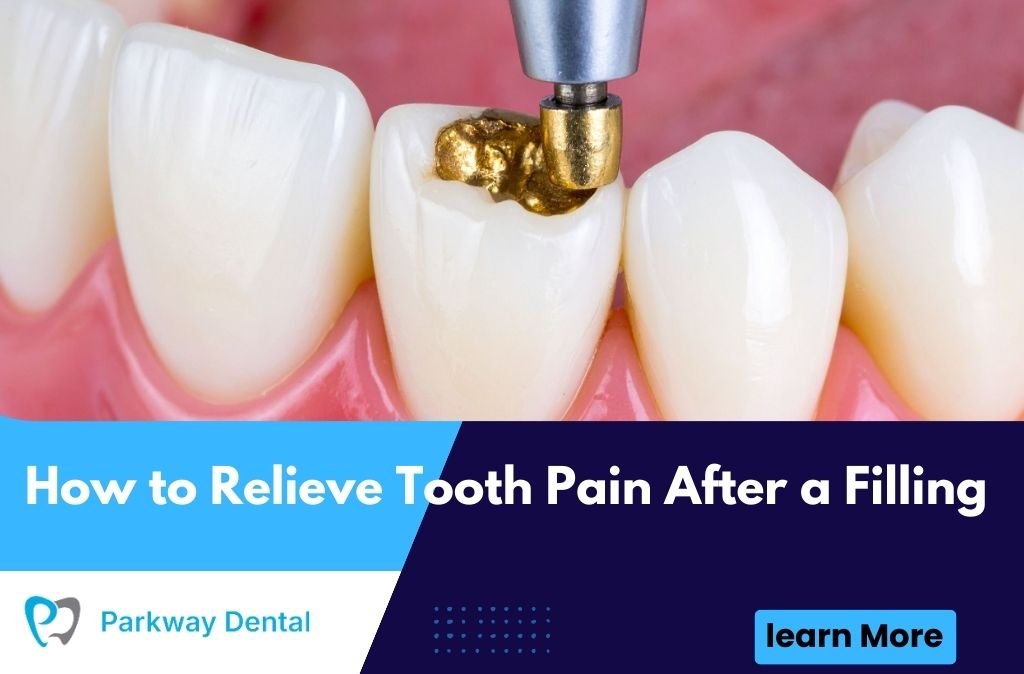If there’s one phrase in dentistry that makes people nervous, it’s “root canal.” Over the years, it’s become synonymous with pain and fear—but is that reputation fair? For many residents in West Roxbury, MA, just the thought of needing a root canal is enough to cause anxiety. But here’s the good news: modern root canals aren’t nearly as painful as you think.
In fact, with today’s technology and advanced dental techniques, most people say the root canal procedure feels no worse than getting a filling. The discomfort usually comes from the pain caused by the infected tooth—not the treatment itself.
In this article, we’ll walk you through exactly what a root canal is, what to expect during the procedure, how painful it really is, and how long recovery takes. By the end, you’ll feel informed, reassured, and ready to take the next step toward a healthier smile.
What Is a Root Canal and Why Is It Needed?
A root canal is a dental procedure used to save a tooth that has become severely infected or damaged. Inside every tooth is a soft tissue called the pulp, which contains nerves, blood vessels, and connective tissue. When this pulp becomes inflamed or infected due to deep decay, cracks, trauma, or repeated dental procedures, it can cause severe pain and swelling.
Signs You Might Need a Root Canal
- Persistent toothache, especially when chewing
- Sensitivity to hot or cold that lingers
- Swollen or tender gums
- Darkening of the tooth
- A pimple-like bump on the gum near the tooth
If you’re experiencing any of these symptoms in West Roxbury, it’s time to see your local dentist right away. A root canal may be the best way to relieve your pain and avoid extraction.
Why Are Root Canals Feared So Much?
The root canal’s painful reputation mostly comes from the past, when dental technology was less advanced and numbing agents weren’t as effective. Today, however, modern dentistry has made root canals nearly painless.
Common Myths About Root Canals
- Myth: Root canals are excruciating.
- Truth: With local anesthesia, most patients feel little to no pain during the procedure.
- Myth: It’s better to pull the tooth.
- Truth: Saving your natural tooth is almost always the best option for long-term oral health.
- Myth: Recovery takes weeks.
- Truth: Most people return to work or normal life within a day.
Is a Root Canal Painful During the Procedure?
Let’s address the big question: How painful is a root canal really?
Thanks to advanced numbing techniques, the procedure itself is not painful. Your dentist will apply a local anesthetic to completely numb the area. You may feel pressure or mild movement, but not pain.
What You Might Feel During the Procedure
- A bit of pressure while your dentist cleans and shapes the inside of your tooth
- Mild discomfort from keeping your mouth open for an extended time
- The feeling of tools working inside your tooth (but no sharp pain)
Most patients compare the experience to getting a cavity filled. If you feel anything uncomfortable, your dentist can always apply more anesthetic.
What Happens During a Root Canal?
Understanding the process can also ease your mind. A typical root canal procedure in West Roxbury goes like this:
Step-by-Step Breakdown
- Diagnosis & X-rays: Your dentist confirms infection and plans the treatment.
- Local Anesthesia: The area is fully numbed.
- Pulp Removal: The infected pulp is removed from the tooth’s canals.
- Cleaning & Disinfection: The canals are thoroughly cleaned to eliminate bacteria.
- Filling the Canals: The empty space is filled with a biocompatible material called gutta-percha.
- Sealing the Tooth: A temporary or permanent filling is placed.
- Crown Placement: In most cases, a dental crown is placed later to protect the tooth.
This entire process usually takes one to two visits, depending on the severity of the infection.
How Painful Is Recovery After a Root Canal?
After the numbness wears off, you may feel some tenderness or mild pain, especially in the first 24–48 hours. This is usually manageable with over-the-counter pain relievers like ibuprofen or acetaminophen.
What to Expect After the Procedure
- Mild soreness near the treated tooth
- Slight swelling or tenderness of the gums
- Temporary sensitivity when chewing
These symptoms are normal and should improve each day. If pain increases or lasts more than a few days, contact your dentist.
How Long Does the Pain Last After a Root Canal?
For most patients in West Roxbury, MA, discomfort after a root canal lasts 1 to 3 days. However, everyone’s healing process is different.
Tips for a Comfortable Recovery
- Avoid chewing on the treated side for the first day or two
- Stick to soft foods and cold or lukewarm drinks
- Take pain relief medication as advised
- Brush and floss gently around the area
- Follow your dentist’s instructions for follow-up care
Remember, the goal of a root canal is to remove pain—not cause more.
How Do You Know If the Root Canal Didn’t Work?
While root canals are over 95% successful, in rare cases, a tooth may not heal as expected. Signs of complications include:
- Ongoing or increasing pain
- Swelling around the treated area
- Tooth discoloration
- A recurring abscess or pus near the gum
If you notice any of these, reach out to your local dentist in West Roxbury for evaluation. You may need a retreatment or follow-up X-ray.
Can You Avoid Root Canals Altogether?
Yes, with good oral care and regular dental visits, many root canals can be avoided.
Tips to Prevent Tooth Infections
- Brush twice daily with fluoride toothpaste
- Floss every day to remove food particles and plaque
- Visit your dentist every six months for cleanings and exams
- Avoid using your teeth to open packages or bite hard objects
- Treat cavities early before they reach the inner tooth
Prevention is always easier (and cheaper) than treatment.
Choosing the Right Dentist for Root Canal in West Roxbury, MA
If you’re nervous about needing a root canal, you’re not alone. But choosing a skilled, compassionate, and experienced dentist can make all the difference.
Look for a dental clinic that:
- Specializes in endodontic care
- Uses digital X-rays and advanced tools
- Offers same-day emergency appointments
- Has positive patient reviews
- Provides clear aftercare guidance
A great dentist will not only eliminate the infection but also ease your anxiety and walk you through the process step by step.
Conclusion
So, how painful is a root canal really? The answer: far less than you think. In fact, most patients say the procedure was easier than expected—and they’re relieved to be free from tooth pain.
If you’re dealing with toothache, swelling, or sensitivity, don’t delay. Prompt treatment can save your tooth and stop the infection from spreading. A root canal is a safe, common, and effective solution for restoring your oral health and comfort.
If you’re searching for a gentle, knowledgeable, and trusted Dentist in West Roxbury, MA, we’re here to help. Book your consultation today and experience stress-free dental care with a team that puts your comfort first.
FAQs
Is a root canal more painful than an extraction?
No. Root canals are done under local anesthesia and are designed to relieve pain, not cause it. Most patients say it’s no worse than getting a filling.
Can I go back to work after a root canal?
Yes, most people resume normal activities the same day or the next. You might feel mild soreness, but you’ll be functional.
How much does a root canal cost in West Roxbury, MA?
Costs vary, but dental insurance often covers a portion. Without insurance, prices range from $800 to $1,500, depending on the tooth.
Will I need a crown after my root canal?
Yes, most back teeth need a crown to protect the tooth after a root canal and restore its strength for chewing.
How do I know if I need a root canal or just a filling?
Only a dentist can confirm through an exam and X-rays. If the decay has reached the nerve, a root canal is likely necessary.






